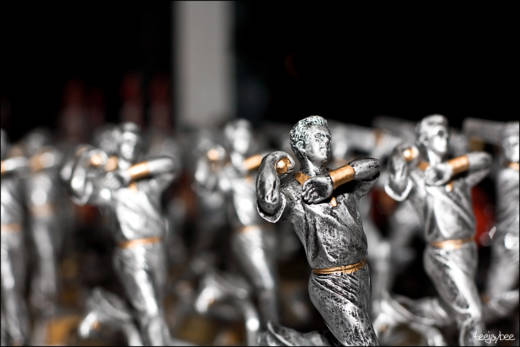Handing out colored bracelets and upbeat stickers when students behave well seems like an effective strategy for encouraging civility. Little prizes and public praise would seem to encourage honesty, generosity and other marks of good character, and for years schools have relied on such rewards to elicit the behavior they desire in their students.
At Lincoln-Hubbard School in Summit, New Jersey, for example, teachers used to hand out stickers to elementary school children with the words “I was caught doing something right” when a child behaved properly. At Glenwood Elementary School in Short Hills, New Jersey, some second-graders who conducted themselves well were rewarded with beans that they could trade in for toys at the end of the week. “You would get them for a bunch of different things, like helping the teacher,” said Brian Smith, when recalling the class reward system. “It made the problematic kids not want to be as problematic."
Rewards can be seductive, according to Marvin Berkowitz, a professor of education at University of Missouri-St. Louis and author of You Can’t Teach Through a Rat. They’re easy, they seem to work—particularly with the hard-to-reach kids—and many teachers are taught according to the behaviorist model, which posits that people repeat conduct that’s reinforced and avoid what’s punished. “We are breeding a new generation of kids who are well trained to be reward and recognition torpedoes,” Berkowitz writes.
But a substantial body of social science research going back decades has concluded that giving rewards for certain types of behavior is not only futile but harmful. In his book Drive: The Surprising Truth About What Motivates Us, Daniel Pink identifies seven drawbacks to extrinsic rewards: they cripple intrinsic motivation, limit performance, squash creativity, stifle good conduct, promote cheating, can become habit-forming, and spur a short-term mindset. Giving prizes for routine and mindless tasks can be moderately effective, Pink writes. But offering rewards for those tasks that are “inherently interesting, creative, or noble…is a very dangerous game.” When it comes to promoting good behavior, extrinsic rewards are “the worst ineffective character education practice used by educators,” Berkowitz writes.
A handful of schools are heeding the research and beginning to back away from the practice. In Florissant, Missouri, students at Northview High School no longer receive rubber bracelets when they do something right. Monthly awards assemblies celebrating the student who demonstrated superior character in the area of responsibility, say, have vanished. Under the direction of Stephanie Valleroy, the now-retired principal of Northview, the school moved decidedly away from prizes and public affirmation of good behavior.


